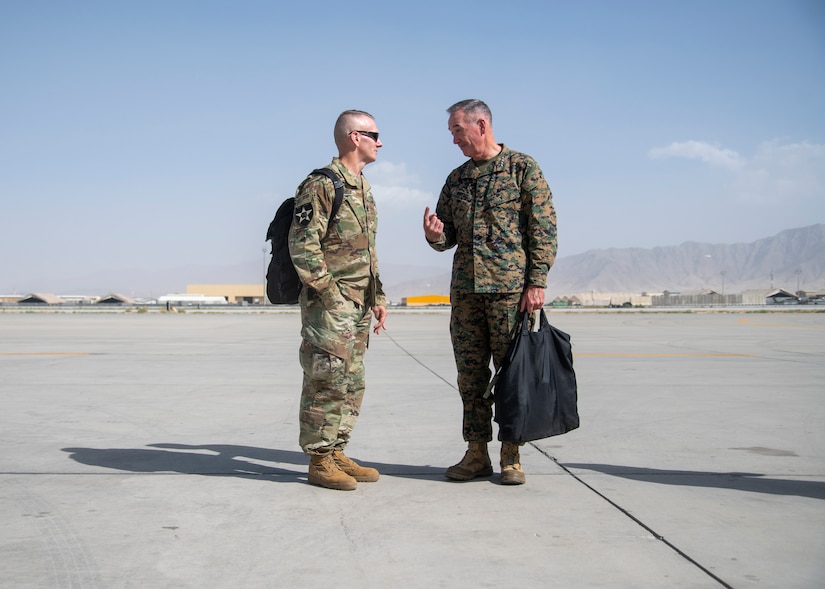By Jim Garamone, DoD News, Defense Media Activity
HONOLULU -- Because a world of transregional threats
requires transregional networks and solutions, U.S. Indo-Pacific Command hosted
a senior enlisted leadership conference here this week.
Senior enlisted leaders from across the globe came together
to discuss strategic leadership and the role of senior enlisted leaders in this
complex and dynamic world. Marine Corps Sgt. Maj. Anthony A. Spadaro,
Indo-Pacom’s senior enlisted leader, was the driving force behind the
conference.
When Spadaro began the conference two years ago, six senior
enlisted leaders attended. Last year, the number grew to 16. This year, it was
20.
Army Command Sgt. Maj. John W. Troxell, the senior enlisted
advisor to the chairman of the Joint Chiefs of Staff, was the keynote speaker
on the first day of the conference. He called the role of senior enlisted
leaders “transformational” in helping to build alliances and networks. “We are
able to devote the time to each other in ways our chiefs of defense can’t,”
Troxell said.
Troxell is the highest-rankling enlisted leader in the U.S.
military. He advises the chairman and the defense secretary and works closely
with the senior enlisted leaders of the services and the combatant commands.
Growing Relationships
The senior enlisted leaders start with professional
relationships that build to friendships, Troxell said. “We do this together,”
he added. “There is more of an interpersonal relationship here that allows us
to grow and get after what we need to get after.”
Doing that, he explained, promotes the relationships that
are so important to building interoperability. “We show our generals and
admirals and elected officials the power of a collective network of senior
enlisted leaders,” he said.
Each senior enlisted leader has to understand the visions,
priorities and intents of commanders and political leaders, Troxell said, and
senior noncommissioned officers must then develop complementary focus areas.
“If we don’t do that, we are on the fast track to
irrelevance,” he said. “We need to have the personal and professional courage
to do and say what needs to be said.”
Complex Operating Environment
Troxell said today’s world arguably presents the most
complex operating environment in the history of modern warfare, where threats
come from nations and nonstate actors looking to use new technologies in new
domains to take on the United States. He also spoke about the ability of
adversaries to use disinformation to push an agenda or to influence people.
Globalization and the increased speed of communication makes this possible, he
said.
“As senior enlisted leaders, we look at chaotic situations
and shape the conditions so men and women can thrive, grow and develop and our
armed forces can continue to develop and be that arm of action that defends our
sovereign territory, our allies and our national interests,” Troxell told the
senior enlisted leaders. “My role is to say what we are doing globally so it
makes sense to our people who work regionally.”
To illustrate his point, Troxell noted the additional
attention the U.S. military is paying to the Indo-Pacific region, noting that
service members in other combatant commands may think their missions should
have more resources and capabilities. For example, he said, troops in the U.S.
Central Command area of operations are worried because they believe they have
threats such as the Islamic State of Iraq and Syria, al-Qaida and al-Shabab and
are losing intelligence, surveillance and reconnaissance assets and fires
control.
“I think we all know that if our troops know what is going
on at the strategic level and why it affects them at the tactical level, they
may not like it -- they may cuss about it -- but in the end they will accept it
and they will drive on the mission,” he said.
Delivering a Message That Resonates
Senior enlisted leaders speak for the troops and to the
troops, Troxell said, and his message in December to troops was that ISIS has
only two options: surrender or die. If they didn’t surrender, he said, there
would be no mercy and service members would “shoot them in the face, or beat
them to death with an entrenching tool.”
“I am saying exactly what [Defense Secretary James N.
Mattis] and [Joint Chiefs Chairman Marine Corps Gen. Joe Dunford] expect me to
say,” the sergeant major said. “It’s about inspiring the troops and dispiriting
the enemy. And it was what the troops needed to hear, which is [that] we’re
going to stay focused on this threat, we’re going to defend our collective
homelands, and we’re going to refuse to allow any terrorist to influence how we
raise our children and grandchildren.
“We are the spokesmen for the troops,” he continued, “and we
need to deliver the messages that will resonate with the troops, will get
leadership attention and people will understand the direction we need to go.”









No comments:
Post a Comment